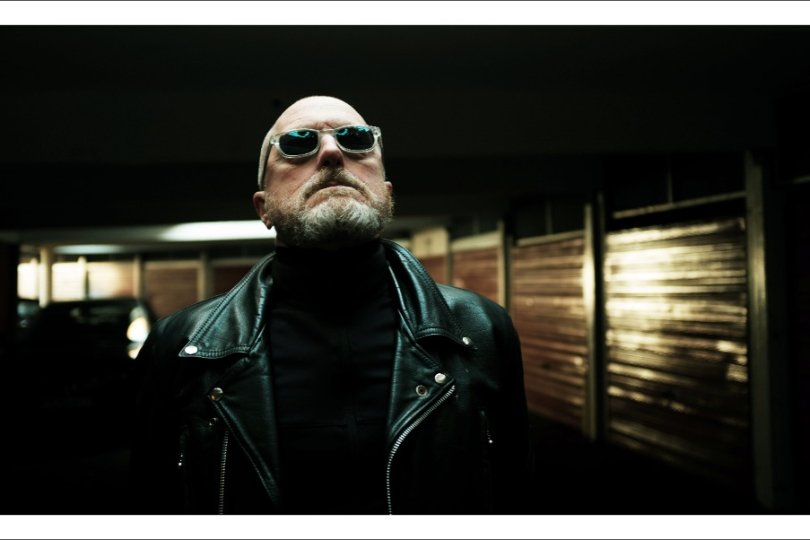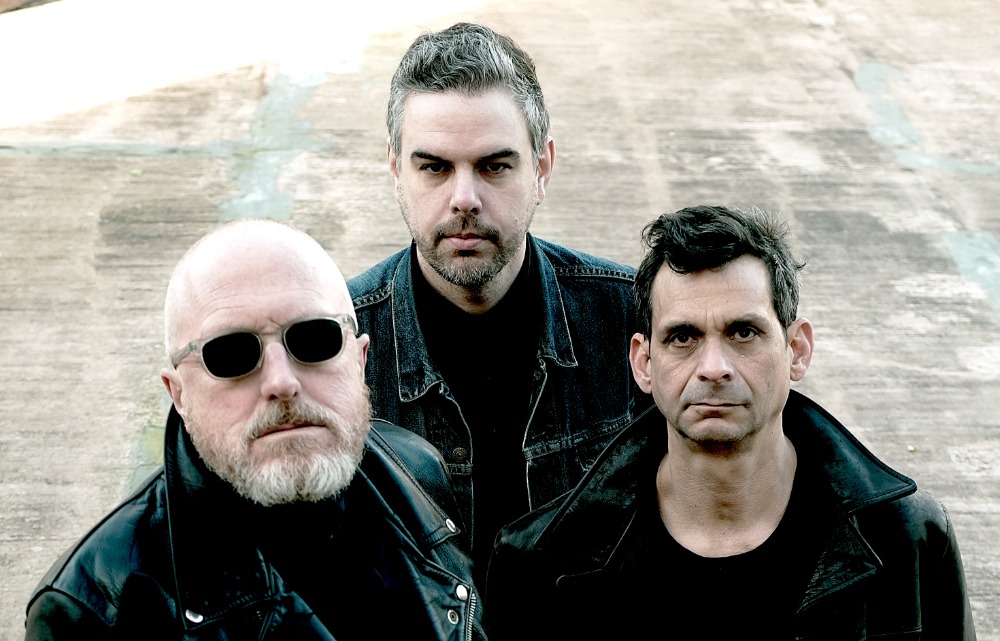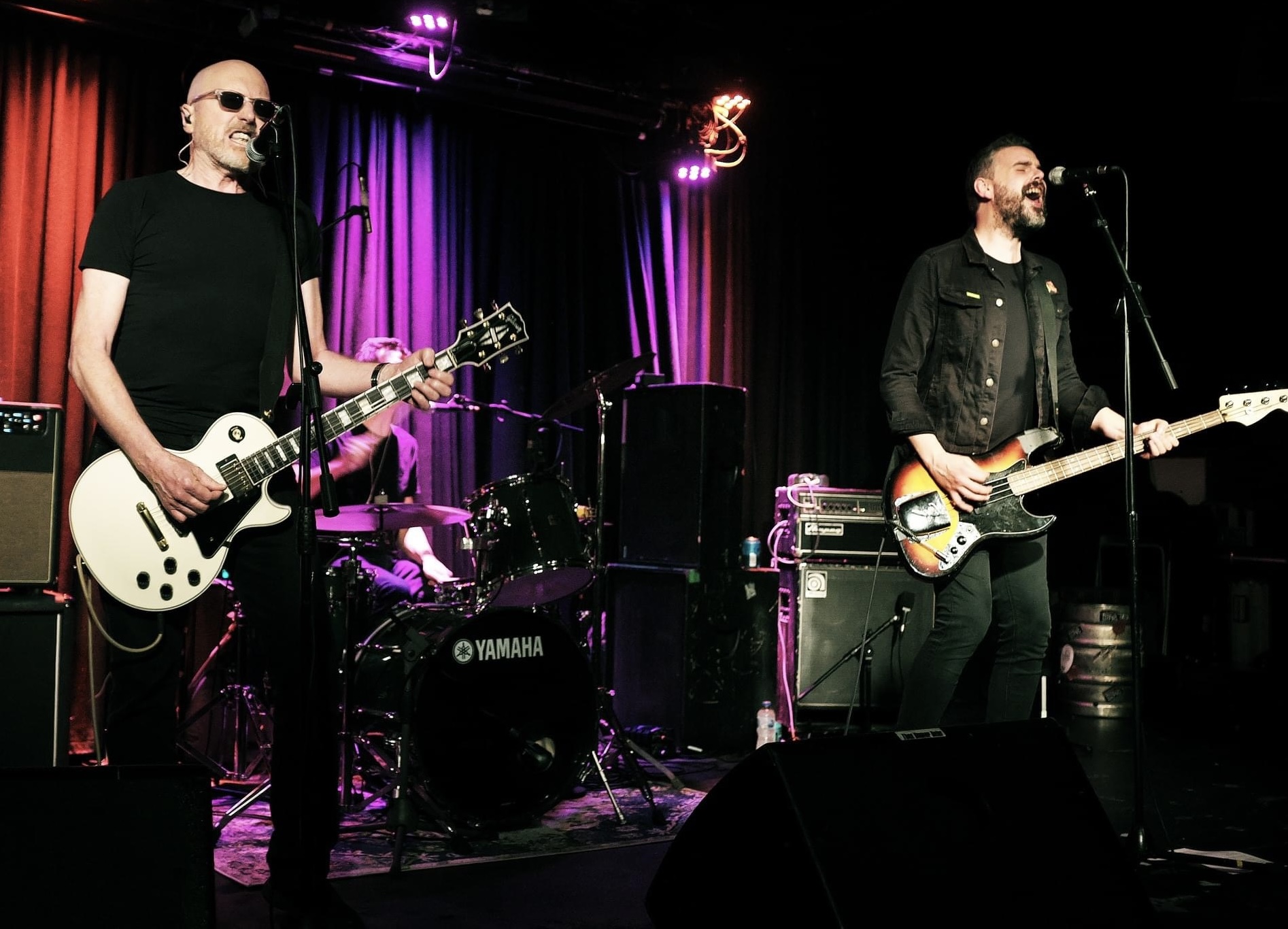
Steve Drewett (Newtown Neurotics): I Wanted to Write Music That Could Connect to People Emotionally
In the late 1970s, Steve Drewett formed the Newtown Neurotics in Harlow, UK, a punk rock outfit that continued until 1988. He brought it back to life in 2006 and this year they even managed to surprise us with a new album, Cognitive Dissidents. The UK's Q magazine named the band one of the best British trios, along with the Police, The Jam and Motorhead, to name a few. But Steve's musical career isn't just Newtown Neurotics. Over the years, he has also managed to record a solo album and the somewhat experimental Afropunk album Disgraceland with the Indestructible Beat project with strong political and social lyrical content. Interviewing Steve was easy, he loves to talk and his memories, insights and opinions, whether about the political situation, music or the history of his home town, are definitely worth a look.
You brought Newtown Neurotics back to life in 2006, after 18 years. Why did it take another 16 years to make a new album?
First, I was pretty adamant, I didn't want to revive Newtown Neurotics. I got persuaded into doing it. I didn't want to do it because if it was for a single gig or something like that, it would be a lot of work for very little payback. And also, it takes a while for a band to get back into it again.
A lot of it has to do with the old fans we wanted to please but there is also a tremendous amount of people who got into Newtown Neurotics whilst we were not around and of course, they were really excited to see the band and couldn't believe their luck that we were back. And we did it, but I still didn't really think the band were back full-time, it was very much a temporary thing to me. But the gigs started popping up and I actually enjoyed it and I wanted to do it again.
And then several years passed by and it started settling in a bit more and started gaining momentum of its own. The general thing was that the songs that were written were still relevant. And I started thinking this is good and we're getting more and more people turning up to see us, we're bigger than we have ever been. We were a much bigger band. It felt there was potential in the band and there was more to reach for. The only thing to do was to take it to the next stage.

And that was to write the new material.
Yes. And we discussed it with the band and we all agreed that this will be a good thing to do. And Adam Smith was really interested in the idea of doing a new album. Adam had been in the Neurotics playing versions of Colin Dredd’s basslines and backing vocals for 15 years, so now with this new album, Cognitive Dissidents, he was able to stamp his identity on the music, with his own bass lines and vocals. In doing so, it showed that the hard work he had put into the band over the years had paid off in the maturity and creativity of his contributions.
And then it was up to me to start to think about what sort of material I was going to write and how to write songs that wouldn't say all the same thing that I said on my previous albums. Of course, the problems were still there, Tories were still there, capitalism was still there, all the things that we were railing against in the 80s were still there. So the question was how to write a bunch of new songs with the new perspective on all of that? And a lot of other things happened at the same time, there was Trump and there was Brexit, Boris Johsnon and a whole load of crap. And just as I was settling down to approach that, covid hit.
Do you stand by your lyrics that you wrote in the 80s, or do you see some things differently?
All our material since the album Beggars Can Be Choosers, stuff that I wrote with my other band Indestructible Beat and my solo album, have been documenting life under neoliberalism and the way it's been crushing people all that time. We have had 30 or 40 years of it and it's now run its course and now we can look back at whatever we believed all that time ago and we can say we were right. There isn't anything that I feel embarrassed about as a songwriter in what I wrote in 1979.
Doesn't it make you sad that some of the things you sang about and warned about then are even worse today? Why do you think our society didn't learn anything and didn't change anything about it?
Well, I mean it's a long game, a long fight. It's depressing and distressing to talk about these things after all these years. I understand history. History has a long arc. We're living through particular circumstances which will become a part of the history books one day.
I have always wanted to write music that meant something and that could connect to people emotionally. If you did it right and did something that adds depth to the music (emotionally, intellectually or both) and people react emotionally to it, that's real magic. I always try to write things that progress people's perception of the world around them because there has been massive right-wing media power over the years. Any voice that speaks out against this right-wing ideology is a rare and much-needed thing.
One of the things I have held next to my heart over the years that we've been playing is that we managed to influence a National Front right-wing guy into actually changing his mind and attitude so that he ended up with a Pakistani girl over the love of Neurotics music. It was in the '80s and they are still together till this day, still love one another. It's an interracial couple that everyone would say would never work. He was young and young people make plenty of mistakes. Sharing their love of Neurotics' music and then meeting just changed their lives. That's what music can do.
There's a song on the album about your hometown, Harlow. Do you still live there?
Yes, I do. We wrote the song about our town, which is on Beggars Can Be Choosers, called "Newtown People". I was a young man when I formed the Neurotics and Harlow was a young town, when I moved to Harlow it was just a town to be built. It was a social experiment in city planning. The idea was to create a town for people's needs from scratch rather than the sort of natural development that was happening before. London for example, started off as a little village around the Thames, then grew out and out. There was never really a plan for London, it just ended up being London.
"Take Your Dirty Hands Off Our Town" from our current album is a song that tries to explain how unique our town is to people who don't know that. I tell a story of how the town comes together. I'd like to say that I ended up experiencing a kind of Stockholm syndrome with Harlow. (It's a bit of a tongue-in-cheek thing for me to say.) As I live in Harlow I grew with it and grew to understand how important it was to me.
Do you have a favourite club or place in Harlow that inspires you?
We had a fantastic venue for many years called The Square which closed down and was demolished a little while back. That really made Harlow fantastic. It was a catalyst for lots of creativity and bands, photographers, artists and things. It made life exciting in Harlow. In the song, I wanted to tell how the ideal of the town was battered by neoliberalism. It was very socialist and community-based and was then trashed and distorted and undermined by neoliberalism. It describes how we got to where we are today.
During your musical career, you not only recorded with Newtown Neurotics, but after their breakup, you worked on your solo material. I really love the Disgraceland album with Indestructible Beat. I think it's an underrated album.
I'm really glad you said that because it is underrated. It was a great idea. Artistically and culturally it was a great success. In terms of its impact and money made, it was a flop. It was very difficult holding such a large band together. I ran out of steam after I put so much energy into the concept. It's difficult to start a collaboration of two styles and get it to people's attention. It's not easy. For something like that, you really have to have luck on your side. We didn't have that.
It was a diverse time, people were looking outside of punk, looking for avenues but we didn't catch the zeitgeist. I dearly love the album. It didn't get released for years, it didn't go anywhere. When technology changed then I released it because I wanted people to hear it. A lot of people who like Neurotics' music are not even aware of its existence. I'm really pleased when someone says "I love the album." So you made my day.

In the '80s, the Newtown Neurotics were perhaps the first rock band to tour East Germany. I know Billy Bragg picked you as support. How did the whole idea for this tour come about, and how difficult was it to organise?
It wasn't that difficult to organise, Billy was approached to do a tour and he went off and did that. Because Eastern Germans didn't have freedom of movement and couldn't go to the west, it was really powerful when a western band went over to play. The culture department in GDR got money to invite acts from Russia or Czechoslovakia or another Eastern European country. But as a lot of people were dissatisfied with not being able to go to the west, they started bringing in western bands. They also had a political song festival which was in February each year, I think, and they brought socialist musicians from around the world to that. So that's why Billy was invited. I think it was not just in Berlin but a tour around the country.
And after that they wanted him to do the summer tour and Billy agreed. I think the acts that were chosen were Bronski Beat or Communards or something like that. But they couldn’t make it so Billy asked Neurotics to do it instead. We were socialist musicians and were doing something that was in the same vein. They thought this would be a good fit and also Attila The Stockbroker was invited to join us.
Did you need any special permission?
The whole concert production was very mature in East Germany. We were sent the paperwork. We had to turn up at some pretty frightening border posts with frightening East German border guards. Because we were asked to play there by the state, the documentation pretty much said: "These guys are here by our invitation, don't give them any hassle."
Until the moment we arrived, punk rock was illegal in East Germany. There were bands playing in the underground that could be arrested for doing that. So when we came in to play, nobody could believe that the East German government was inviting a punk band. It was absurd. They didn't believe they allowed punk musicians from Britain to play massive concerts.
There must have been a number of regulations accompanying the performance.
The first concert was in the Palace of the Republic. There were 9000 people in the hall and there was another 4000 outside that couldn't get in. It was incredible. There were lots of rules and regulations. The Stasi were there, they were keeping an eye on us. They were there every gig, on the side of the stage or at the back of the stage. You couldn't smoke on stage, you couldn't bring your beer on stage. And when we were announced: "Ladies and Gentleman, the Newtown Neurotics," we walked on stage smoking cigarettes, bottles of beer in our hands and we put the beer down by the side of our mic stands. People couldn't believe it, it was so rule-breaking. They took photographs of beers with our feet next to them. And when I turned around, my ass was hanging out of my jeans. You could see my underpants. Everyone went: "What's this?" We were like from another planet.
The fact that we were standing on stage at that moment was a clash of ideologies, between communism, socialism, state capitalism and our view of socialism. And from that moment on and the fact that the artist agency pushed their limits of who they can be invited over, the mood began to change. We didn't have any idea what was going on around us and we didn't know the significance of it all.
You also played in North Korea.
After the Berlin wall came down, Attila the Stockbroker was approached by North Koreans who obviously had some diplomatic connections with East Germany. They asked him if he would be interested to play in North Korea and he said yes. That was a place where no one could get to play. They told him the dates but Attila had already booked a tour in Canada. He couldn't change the dates, of course. So he said: "Okay, I can't do this but I know somebody who can." So I was the second choice. I went there and played in North Korea. I was in Pyongyang for three weeks which was another eye-opener. But that's a story for another time.
If you have found an error or typo in the article, please let us know by e-mail info@insounder.org.

